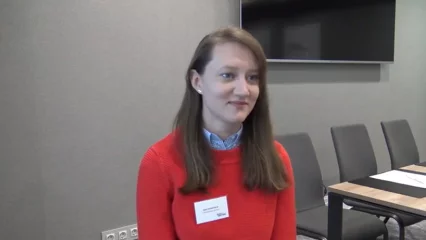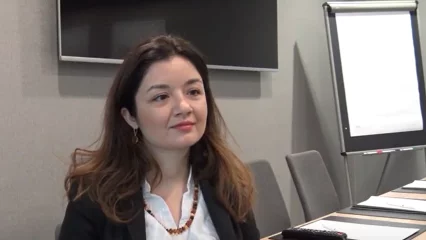What are the Ivy League MBA Interview Questions?
Unless you have access to the very best coaching, you might not be able to prepare in the best possible way. Most people will tell you that you need to practice a list of questions, be polite to the interviewer, and try to talk about your achievements in detail.
But there are some tips that can have very high impact, and help you get to the next level in an Ivy League MBA interview. Not many people will ever tell you about these, but they could make all the difference in your interview.
After all, those who get through to the interview stage are all candidates in whom the business school is very interested, and all of them have a chance – up to 50% of them will receive a final offer email! You need anything you can find to differentiate yourself from the others, and come out on top; one of these little-known tips could push you that extra mile.
Read Master These MBA Interview Questions
Know your interviewers

Use the Internet to find out about various high probability interviewers from the Admissions Board.
Forewarned is forearmed - but most people with an Ivy League MBA interview scheduled only take this as far as preparation for probable questions is concerned. We recommend that you take it to its logical conclusion, and find out a little about the people who handle MBA admissions at the schools where you are interviewing. Learning from the experiences of past interviewees: either people you know directly or interview notes that you find on the net, is the best thing to do - many of these will have interviewers’ names in them.
Using these details, you will gain some idea of what to expect - you will know if the person you're meeting is impatient or pleasant; detail oriented or big picture oriented; tolerant of long windedness or a believer in brevity.
This is a very easy way for you to gain an advantage over other interviewees; most will never even think of finding out anything about interviewers. If you do, you can position your answers accordingly and make a good first impression.
Of course, you want good, reliable data, so use secondary indicators to understand whether the person who is giving you inputs is someone whose opinion you would trust.
See also Ivy League: Success through Humbleness
Practice your interview presence

Take videos of yourself, so you can work on your interview presence.
The Ivy League MBA interview is all about the big points, your story, and interviewer impact. Many people think this means that they need to focus only on what they will say, and that the rest will take care of itself. They sometimes miss out the important factor of personal presence, and do not understand how deeply this can affect the impression that any interviewer takes away of any candidate.
In our experience of counselling hundreds of successful admits over the years, here are some tips on how make sure that the physical presence and aura you project are in keeping with what will make a favourable impression on the interviewer, rather than getting you off on the wrong foot.
Over and above the obvious points like impeccable personal grooming, your body language needs to be positive, motivated and interested. A lot of candidates achieve this by leaning forward slightly, in order to communicate non-verbally that they are completely engaged. In addition, you need to come across as friendly and pleasant.
Most of the candidates we coach achieve these goals in one of two ways: either by using an observer to give them feedback on their presence, or by having videos taken of their own mock interviews, and playing those back to self evaluate, and constantly improve at coming across as good potential admits.
Check out How to Impress at the MBA Interview
Don’t try to monitor your performance

Do not try to second guess how well the interview is going based on the kinds of questions that you are being asked.
The most counter-productive thing you can possibly do in an interview in your dream Business School is try to evaluate how it's going while you're still in it. Quite apart from anything, you will need all your wits about you to answer the questions that you are being asked in the best possible way.
In addition, there is no real correlation between question patterns and candidate performance. Some of our students have been asked about one point on their resume for up to five minutes; this was not necessarily because the interviewer was probing a weak point, but because they wanted to fully understand and appreciate personal impact. Some have been cut off in the middle of multiple answers; this was not done because they were talking in circles or boring the interviewer, but because twenty minutes is a very short period of time, and they were being given a chance to present as much information about themselves as possible.
Similarly, the pattern of 'easy/difficult' questions does not really mean anything. If you are being grilled hard for an extended period of time in your interview, it definitely does not mean that you have given weak answers or that the Admissions Board has a personal bias against you; it is probably because of interviewer style, or because you are being considered strongly as a potential candidate, subject to a few routine clarifications. Thinking about why you are coasting or struggling with your answers makes no sense - remember that how you think an interview is going is not necessarily a true representation of how it is actually going in the perception of those people who are interviewing you
Do not arrive too early

This might seem a little non intuitive - after all, on the day of the most important interview in your life, you might think that you should be there hours before your scheduled time slot, rather than take the risk of being even slightly late, right? But there are disadvantages to arriving too early, too. Here's a look at what might happen if you arrive a few hours before interview time.
If you arrive early, you will be in a communal waiting room; if it's a typical interview day, there will be a bunch of other candidates in there with you - some who are waiting for an interview, and some who have just finished theirs. Since not all of these will have the same prep level as you, it is entirely possible that some of them will not do as well as you. This negativity can impact your own mindset, and take you from your focus on your story to an unhealthy examination of what could go wrong.
In addition, candidates have a tendency to compare notes about the questions they were just asked, and this could again derail your careful preparation. Questions that were asked to someone else, even if that person went in just half an hour before you will, have no possible bearing on that which will be asked to you. Knowing details of others' interviews on your big day will not help you.
Finally, if you spend the hours before your interview in a controlled atmosphere where you can eat what is best for you, talk to whoever you need to, go through last minute prep, and get ready in your own way, it will work out better for you in the long run - definitely better than spending hours in a waiting room!
Do not overstress about materials
Carry all the required physical materials, but do not overstress about those: your main asset in the interview is what you say.
Another common misconception about interviews is that you need to have every important document that belongs to you conveniently at hand. While you would certainly be well served to carry a copy of your application, and any important supporting documents you think will lend credence to your story, you definitely do not need to land up with a heavy dossier full of everything about yourself.
You create impact in a top flight MBA interview by how you speak, what you say, and how you come across. It is a conversation rather than a presentation or even an interview; spend time on preparing various conversational lines rather than on packing a bag full of exhibits to show an interviewer.
Read Admissions Interview
Stay positive

Keep in mind, all the time, that your chances of success are high.
Stress is the worst enemy of anyone sitting in an Ivy League MBA interview - the Admissions Board wants to see and evaluate you at your best, and this will only happen if you are completely at ease. Even though your preparation might be perfect, there will still be butterflies in your stomach - after all, this could well be the most important half hour of your life.
One positive thought you can keep with you, and use to counter stress and nervousness, is this: a lot of the hard work is already behind you. If you have received an interview call from a top Business School, you have already won: you have passed the most rigorous of tests, and got through the strictest shortlisting criteria. Once you have an interview call, you should keep in mind that up to 50% of the candidates interviewing with you (depending on the school) will receive an admission offer, and this is a much higher percentage than it was in the earlier rounds, in which you did very well.
Your interview is a chance for you to show why you will stand out; it is not something designed by your dream schools to knock you out of the process. And the best way to show why you are special is to be completely tension free, and talk about your major career accomplishments.
Prepare key messages

Prepare key messages to speak about, rather than detailed answers to hundreds of possible questions.
There are two ways to prepare for the questions that you will be asked in an Ivy League MBA interview - one is to over prepare, to go through huge lists of interview questions, and draft an answer for each of them. This often works, but it is a huge drain on your time. In addition, there are also the dangers of seeming overly rehearsed while giving your answers, or of stumbling in case you are faced with a new question in your actual interview - one that is substantially different from anything you have spent time on earlier.
The second approach is often more fruitful, and is definitely more efficient. It involves preparing a list of key messages - the highlights of your story that you definitely want to speak about in an interview. Once you have created this list, you should do a series of exercises where you take a few interview questions, and try to link the answers for each of them to one of your key messages. As you get better at this, you will see that you have done something remarkable. No matter what an interviewer asks you, you will be able to connect it - completely plausibly - to something that you want to talk about, something that will have the greatest possible impact on your audience.
Cutting down on the number of things you have to prepare and hold in your head has one huge advantage - you will be able to practice your few key messages until your delivery, conviction and clarity are unmatched, and your final interview will see you behaving like a Master of a few important trades, rather than the Jack of all of them!
Check out Hot Questions about MBA Interview Questions
Adapt your daily sleep schedule

Sync your daily sleep schedule and alertness spikes according to your interview timings; start doing this at least a month in advance.
Usain Bolt spends 1,460 days training for a 10 second period that comes once in four years. He ensures that he is at his physical peak at the Olympics and the World Championships, and everything he does - mentally and physically - aims to get him in that shape, and keep him there.
Your Ivy League MBA interview is pretty much the same. You put in hours, weeks, years and decades of work into creating a story that has a high chance of landing you in one of the best Business Schools in the world. Your final interview might last for a shorter period of time than you have ever spent in one period of prep, so you need to be at your peak in every possible way.
The easiest way to start on this is to sync sleep and alertness patterns; for just 30 minutes of time, you need to be at your complete best, so that you can deal with that portion of the interview which is unexpected.
Start early - you could hope for a miracle and try to sync your body clock over just a week, but a month is recommended.
Disregard if the interviewer is taking notes

The interviewer is not always writing down notes about your interview, so do not pay attention if he / she is writing or typing excessively.
The sad truth is that you might give 100% of your attention to the interview, but that might not be the case with the person in front of you. Sometimes, your interviewer has already made up his / her mind about you (usually positively; if there is a negative first impression they look for ways to give you a chance), and is using the time of the interviewer to catch up on some office work.
Sometimes, what is being written down diligently is indeed about you, but contains overall impressions instead of what you are actually saying. Hence, thinking that every word you say is being recorded carefully, and being intimidated by that supposition, will not help you in any way. You should focus on what the interviewer says, rather than on peripheral actions that you cannot interpret correctly.
Stay alert for signals from the interviewer

If you are on the wrong track, the interviewer will try at least three times to steer you the right way.
Try as you might, there is a chance that you will make a mistake or two in an answer to a question. But that is not the end of it, your interviewer wants you to succeed. The first, and most obvious cue that you usually will be given is when he/she suggests a slightly different train of thought or reasoning. If you hear this kind of suggestion, always recall what you just said before that suggestion; chances are that it was not the best answer, and that it will be improved if you take the cue from the interviewer.
Next, you should also pay attention to non-verbal cues. In addition to telling you that something is important, the interviewer will likely emphasise or underscore this physically as well (for example, by bending forward and speaking more slowly). Finally, many interviewers also choose to present you with facts that argue against the point of view you just presented. Unless you disagree violently with their interpretation, it's always best to bow to their opinion, and go with what they think is right - 20 minutes is too short for constructive debate.
Read Impress at the Admissions Interview Tips and Tricks
We hope that you are now clear on what it will take to succeed in your dream B-School interview, and make an impression on your interviewer. Remember, you need to think beyond conventional wisdom, and think of ways to set yourself apart.
If you are looking to strengthen every aspect of your MBA profile, right from your professional experience to your test scores and your final interview prep, you might want to take advantage of the Jamboree system. We have coached and helped hundreds of students past the final hurdle over the years. All the best!
This article is provided by our partners Jamboree India




